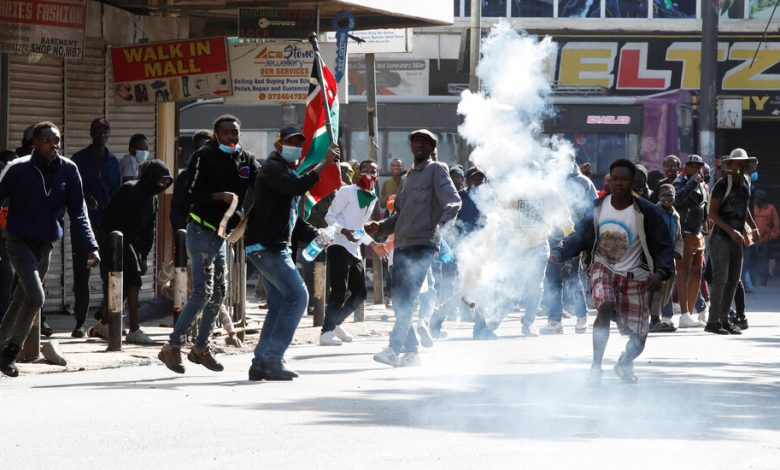Protests Driven by Younger People Aim to Push Kenya to Scrap Tax Rises

Hundreds of Kenyans took to the streets on Tuesday in a movement led by younger people that demonstrators hope will compel the government to scrap a finance bill that critics say would make life onerous for millions of people who are struggling to make ends meet across the East African nation.
The debate over the bill has shaken Kenya, an economic powerhouse of 54 million people that has long been an anchor of stability in a deeply tumultuous region. As thousands protested over the tax increases across the country last week, at least one person was killed and 200 others were injured, according to Amnesty International.
Before Tuesday’s demonstration, several activists who are prominent critics of the bill were abducted, according to the Law Society of Kenya. The abductors’ identities were not publicly known, but some were believed to be intelligence officers, said the Law Society’s president, Faith Odhiambo. The police did not immediately respond to a request for comment.
Lawmakers in Parliament are set to debate and vote on proposed amendments to the bill on Tuesday. President William Ruto’s governing alliance has enough votes to pass it, although opposition leaders have rejected the measure in its totality. Once the bill has parliamentary approval, Mr. Ruto can sign it into law or send it back for amendments.
As demonstrators packed the streets last week, lawmakers vowed to withdraw some taxes, including on bread, cooking oil and cars. But protesters have denounced other taxes, including on imported goods, and have urged the government to abandon the draft legislation.
“The audacity to raise taxes during these hard economic times, not listen to our concerns and then mistreat us shows how tone deaf the government is and how they don’t care about us,” said Kasmuel McOure, 26, a musician who was participating in Tuesday’s protests.
The contentious bill was introduced by Mr. Ruto’s government in May to raise revenue and limit borrowing in an economy facing a heavy debt burden. But Kenyans have widely criticized the legislation, saying it adds punitive new taxes and raises others on a wide range of goods and services that would escalate living costs.
Detractors of the bill have pointed to corruption and mismanagement of funds, and faulted the opulent lifestyle and extravagant spending that they say have characterized the administration of Mr. Ruto, who has been in office since 2022. Kenyans have also faulted Mr. Ruto for reneging on campaign promises to champion the welfare of the poor and the interests of the striving Kenyans he called “hustlers.”
Observers say that the protests have been guided by younger people who have used social media platforms like TikTok and Instagram to initiate a leaderless movement that has galvanized the nation. Young Kenyans say that their movement transcends the limitations of class, tribe or race, and that it is focused on attaining economic security and social equality for millions for whom that has remained a distant dream.
